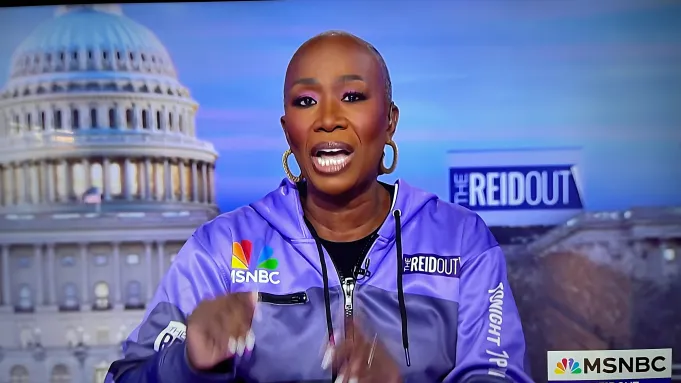Though not connected, news of Reid leaving MSNBC and Holt stepping down from the NBC Nightly News signal a troubling trend in TV news

These days, it feels like mainstream media outlets are making a lot of mistakes they will soon live to regret.
In truth, you could have said that about traditional platforms for years. But it seems a particularly pressing issue now, given that MSNBC has canceled shows featuring Joy Reid, Katie Phang and Jose Diaz-Balart. At the same time, in another corner of NBC News, anchor Lester Holt has announced his departure from NBC Nightly News later this year.
The changes at MSNBC are part of a significant restructuring which will also see new duties and cancelled shows for everyone from Jonathan Capehart to Alex Wagner. And a trio of anchors — Alicia Menendez, Michael Steele and Symone Sanders-Townsend – will take over part of Reid’s 7 p.m. timeslot, in a two-hour panel show that feels like an attempt to create a left-leaning version of Fox News Channel’s successful The Five. Read more details here.
At MSNBC, it’s all about getting ready for the impending separation of Comcast’s cable channels into a new, independent company called SpinCo. Diaz-Ballard and Phang, who had shows airing from NBC’s studios in Miami, were logical cancellations.
But news that Reid, a consistent and high-profile Trump critic, was fired amid talk that her brand of pushback was too intense for the parent company, is a woeful miscalculation, if her criticism factored into her departure.
True enough, the Trump administration seems to be using its control of government to visit extra scrutiny on media outlets the president has criticized, including my current employer, NPR. And Trump has also criticized Reid, MSNBC and Comcast CEO Brian Roberts.
But firing a prominent Trump critic now also plays into a problem many traditional news outlets are seeing now, which is disappointment and anger from supporters who expect a stronger stand from traditional news outlets against government intimidation and extremism.
I think that explains, in part, the remarkable spectacle of seeing MSNBC’s top anchors go on air to criticize the decision to oust Reid and layoff so many staffers who worked on the cancelled shows. While their dismay and objections were an understandable reaction to seeing a longtime colleague displaced, MSNBC’s decision to allow such sentiments to be discussed on air also seems a way of insulating the channel’s most popular talent from an unpopular decision made by management.
And, at a time when the very value of diversity in American institutions is in question, implementing charges which result in firing and demotions of the channel’s highest-profile non-white anchors seems a bizarrely off brand action for a news channel that is supposedly liberal-oriented.
Rachael Maddow called out the channel herself: ““I will tell you it is also unnerving to see that on a network where we’ve got two—count them, two— non-white hosts in primetime, both of our non-white hosts in primetime are losing their shows, as is Katie Phang on the weekend,” Maddow said. “And that feels worse than bad, no matter who replaces them. That feels indefensible, and I do not defend it.”
Holt’s departure is a reflection of another disturbing trend, where high-profile anchors who are likely earning significant salaries suddenly decide to leave their high-flying positions. CBS anchor Norah O’Donnell and Today show anchor Hoda Kotb are considered two other examples of this trend, where cutbacks have required top flight anchors to either consider steep pay cuts or significant job changes or both.
The problem with sending popular anchors out the door, is that they were paid high sums for their ability to connect with audiences. Replacing them with less expensive hosts, is that those new people likely don;t have the same audience connections, which can exacerbate any problems with holding audience that the original anchors had.
For proof, look to how ratings of the CBS Evening News have fallen in the wake of O’Donnell’s departure. Or check out local TV newsrooms across the country, where anchors with long tenures, deep community roots and big salaries have retired or moved on, giving local audiences fewer reasons to watch a diminishing platform.
Of course, news operations have to retool themselves for changing times. And as viewership falls on broadcast and more cable TV customers cut the cord, it makes sense that big corporations would readjust their strategies and staffing.
But it always worth asking whether cuts which seem advantageous in the short run, will have more negative long term effects. And its also worth asking whether a channel which has, for so long, held itself as an advocate for liberal thought and the strength of diversity, wants to proceed into the future by taking a step back on both counts.